IB Learner Profile Spotlight – Communicator
As an IB World School, we strive towards the Learner Profile, a set of 10 attributes that help shape students into positive and productive members of their local and global community. One such attribute is being a Communicator.
Think about how many ways we communicate in the course of a day. We speak to our families, our friends, our colleagues. We interact with strangers – ordering coffee, asking for directions, thanking bus drivers. We send texts and emails, and use social media online, and in person we use facial expressions and movement to show others how we feel. Sometimes we have to present information, verbally, visually, or in writing. We might have to give criticism, or receive it. We ask for information and advice, or others ask it of us. These are all situations which our kids will face in their lives beyond school too.
As an IB School located in the diverse landscape that is North Vancouver, students at Brockton learn to be communicators from the day they start in Junior Kindergarten. From their first day of school, children are learning how to express themselves in a range of ways, from French and English to art and movement.
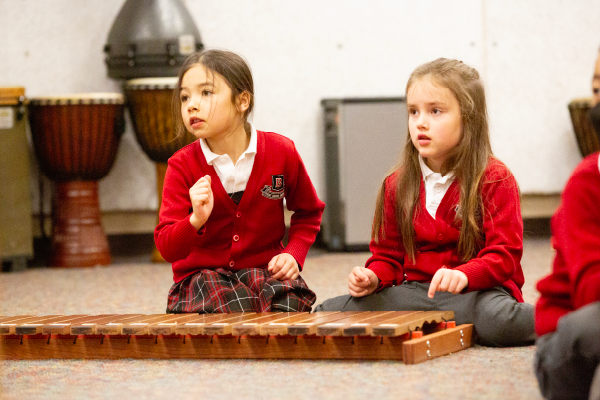

The Junior School
In the Junior School, learning happens both individually and collaboratively. This can look like reading and writing, practicing active listening, visual art, or physical movement. Each class begins the day with a morning meeting, as a time to connect with each other and discuss the day to come. Every Grade in the Junior School takes French, and from Kindergarten will participate in a reading program or book club. The Junior Kindergarteners get to participate in the Reading Buddy program, where they are practicing their literacy while also having the opportunity to connect with older students in Grade 12.
Outside of the classroom, students have freedom within their school uniforms to express themselves through hairstyles, and on casual days, communicating who they are through how they dress. Students are encouraged to share their feelings, and learn how to compassionately listen to the feelings of others. Overall, the Junior School is a space where students feel safe and empowered to explore and practice communication skills.
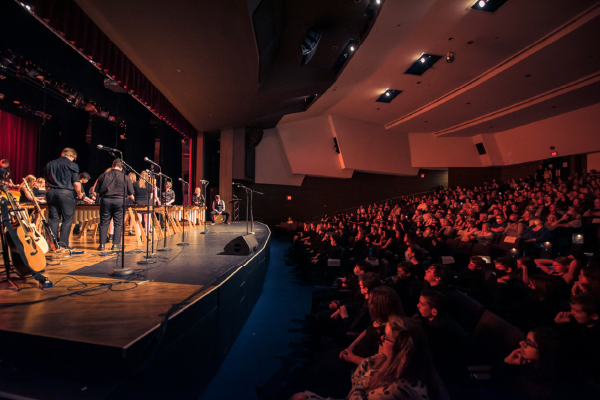
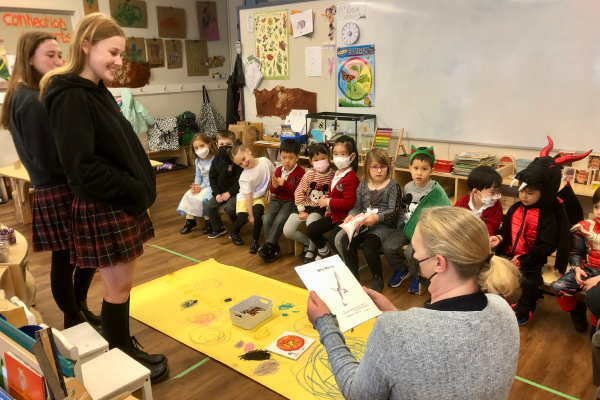
The Senior School
In the Senior School, opportunities for furthering students’ communication skills continue. At Grade 6, students join the POD Programme, and in Grade 7 have the opportunity to join one of the Community Action Teams. This is an opportunity for our youngest senior school students to take on leadership roles, as well as work with older students they may not connect with in their classrooms. The Community Action Teams are collaborative spaces in which students have the opportunity to lead initiatives, connect with stakeholders both within the school and beyond, and discuss issues that are important to them. Through the Senior Years, many students choose to stay on these teams for the skills and opportunities they provide, and for the chance to mentor younger students.
Students continue to take French through their middle years. Once they reach Grade 11, they have the opportunity to choose to continue French, or pick up Spanish or Mandarin. Music in the Senior School is also a focus, with students joining the World Music Program when they enter the POD. In this program, students learn expression through music, as well as how to communicate as a cohesive and collaborative group. There are opportunities to perform for external audiences, which teaches these learners to communicate with confidence, and the importance of using their appearance and on-stage presence to express their professionalism and pride in their work.
As our learners move into the Graduating Years in Grades 11 and 12, they are honing their communication skills. No matter the pathway a student chooses, they will be required to write longer assignments, read and question deeper resources, and present information and understanding in a wider variety of ways. Grade 11 and 12 students often hold leadership positions within the Community Action Teams, and will lead many of the whole-school initiatives, such as Spirit Days and community donation drives.
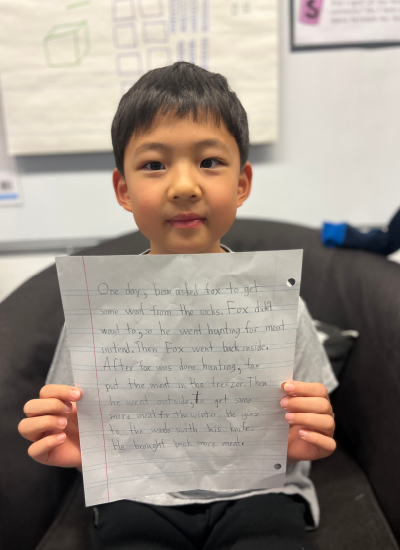
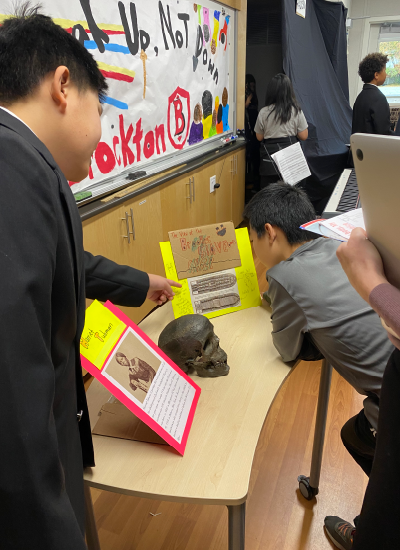
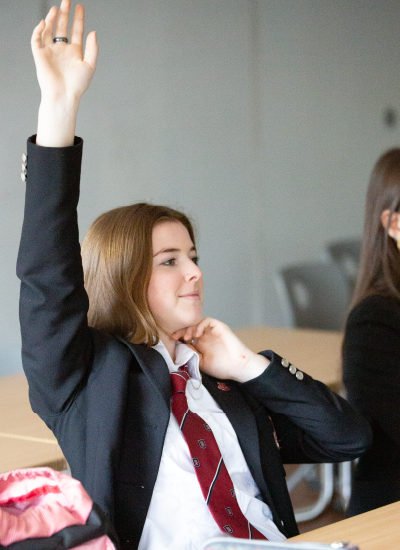
Faculty Too!
As a school, we value learning for life. Because of this, faculty are also constantly learning and improving their communication skills. Collaboration time each week is an important part of the way Brockton operates, allowing team members to check in with each other and the mission of the school. Monthly whole-school faculty meetings allow staff to connect across the school, with team members they may not interact with in their day-to-day work. Pro-D days allow faculty the opportunity to do their own personal learning, whether that is attending workshops and conferences, or leading them (which our staff are often asked to do!). Staff are also required to head at least one extra-curricular activity, meaning they are asked to communicate in a setting outside of the classroom.
Communication for life
Learning to be a communicator is an integral part of a Brockton education. Having solid communication skills sets our students up for success in life after school, wherever they choose to go.
You can learn more about the International Baccalaureate, and the Learner Profile, on their website ibo.org, or by experiencing it at our school.



